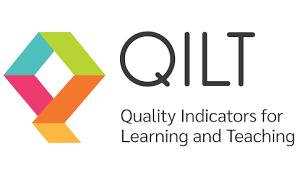Graduate Certificate of Leadership and Management (Organisation Dynamics)
The only leadership course in Australia that takes a psychodynamic view of human behaviour. Students develop insights into individual and group behaviour to create meaningful change in the workplace.
📆 Next intake: July 2025 – Applications now open!
⦿ Live interactive online
🕓 1 year part-time
Course Overview
Foster your analytic and academic skills by deepening your understanding of the unique demands of particular work systems. Enhance your appreciation of the professional, political, cultural, emotional and ethical nuances of organisational life.
The Graduate Certificate of Leadership and Management (Organisation Dynamics) is designed for work-experienced professionals who wish to develop their managerial capacities through the application of systems psychodynamic concepts to their actual experience of managing.
The course supports the development of individual capacities to shape and take up work roles that are meaningful, values-based, and which serve the ultimate purpose of the organisation.
It provides industry-relevant, post-graduate education grounded in rigorous conceptual development and work experience and provides opportunities for engagement with real-world learning in a social and global context.
On successful completion of this graduate certificate, you will be eligible for entry into the graduate diploma.
Course Description
The Graduate Certificate of Leadership and Management (Organisation Dynamics) integrates work experience with academic theory.
Students can expect a course that:
- uses international benchmarking to enhance course development, delivery and relevance
- provides opportunities for engagement with real-world learning in a social and global context
- facilitates connections across disciplines and contexts through an integration of psychological, sociological, anthropological and philosophical approaches to organisations.
At a glance
🎓 Graduate Certificate of Leadership and Management (Organisation Dynamics) – GCLM(OD)
🗞 AQF level 8 postgraduate coursework 48 credit points
🎒Classes limited to 15 students.
Total students 20.
🕓 1 year part-time
⦿ Live interactive online,
with onsite opportunities
📆 Next intake July 2025
– applications now open!
Course Structure
The Graduate Certificate of Leadership and Management (Organisation Dynamics) is offered on a part-time basis to people with an appropriate level of work responsibility and experience.
The course is designed around cohorts of students learning together across time. It is a ‘temporary’ organisation within which students study the emerging classroom dynamics alongside the issues that concern them within their own organisations. Small student cohorts (twenty or less) enter Year 1 and remain together as a learning group, as far as possible, across the course duration.
Assessment reflects the focus on work-integrated learning. The assignments are practical in application whilst also requiring the use of rigorous theoretical concepts.
The course is a carefully designed learning experience that is tailored to support incremental learning that builds semester by semester across the course.
To qualify for the award of the postgraduate Graduate Certificate of Leadership and Management (Organisation Dynamics) students must complete 4 subjects. Total 48 credit points.
Course Outcomes
Psychodynamic theories are studied as a basis for understanding, withstanding and creatively managing unconscious defences which impede work group functioning and task accomplishment.
On successful completion of the Graduate Certificate of Leadership and Management (Organisation Dynamics) graduates have the following.
Knowledge
Establishment of the core conceptual frameworks spanning systems and psychodynamic dimensions.
Skills
Cognitive, technical and communication skills to be able to apply a ‘mind’ for systems psychodynamic thinking, which includes:
- viewing from a ‘systems’ perspective the management of connections, sometimes hidden or unconscious, between people, tasks, structure, technologies and context; to understand and manage the unconscious defences which impede work group functioning and task accomplishment
- recognising, evaluating and applying the conjunction of technology and human behaviour (socio-technics) as a principal feature of organisation design and the social architecture of work relations; to improve organisational culture
- establishing the capacity to think with, and to lead others purposefully, in the face of change and uncertainty
- establishing skills in the clarification of researching, thinking and writing for communication of systems psychodynamic concepts, through creation of working hypotheses, reasoned analyses and articulating research findings
- establishing an understanding of the ethics associated with the application of the discipline, including attention to principles of integrity and honesty.
Application of knowledge and skills
Establishing competency in utilising ‘Participatory Action Research’ methods for collaborative discovery and problem-solving in work settings.
Units of Study
This course is offered in part-time mode only. Subjects are taught in mixed blocks of day/evening classes (see timetable for details).
Students must complete 4 core subjects of study (48 credit points). Students are able to choose to study one or two subjects per semester.
MLM1 Organisations and Management through the Art of Metaphor (12 credit points).
MLM2 Unconscious Processes in Groups and Systems (12 credit points).
MLM3 ‘Through a Cultural Lens’: Collaboration with the ‘Other ‘ at Work (12 credit points).
MLM4 Systems Psychodynamic Consulting (12 credit points) or MLM8 Leadership and Authority for Role and Task (12 credit points
Admission Requirements
Completion of a three year Bachelor degree or equivalent and at least five years of relevant work experience.
Special entry may be granted to no more than 10% of the intake, in any given year, to those who have not completed a three year Bachelor degree or equivalent, but who have other tertiary qualifications and extensive relevant work experience.
Students entering this degree are required to have a minimum level of English language proficiency (details of these requirements can be found at www.nioda.org.au/policies).
Investment
In 2025 the fee is AUD $3,600 per subject (AUD $14,400 per year, if undertaking two subjects per semester). Fees are payable by the due date before each semester begins.
Payment can be made upfront by direct deposit, credit card or by utilising FEE-HELP. Information for FEE-HELP can be found on the study assist website https://www.studyassist.gov.au/help-loans/fee-help.
There are no incidental fees charged for this course.
Fees are reviewed each year with the new schedule published each October for the following year.
Many employers have study support policies that include financial and other support. Speak to your employer to find out if you are eligible to receive such assistance during your postgraduate studies. Employers gain significantly from the studies undertaken.
Application for ‘Leave of Absence’ must occur prior to the first class in that semester. Fees will not be refunded after the census date in either semester.
How to Apply
Post-graduate application.
Application for the course involves the completion of a written form and an interview. Successful applicants will be made a formal offer of place after which they can proceed to enrol.
Learn More
The Dean is Professor Wendy Harding and the Master’s Course Lead is Thomas Mitchell. Student Services Lead is Tilly Robertson. Email info@nioda.org.au with your queries.
Master’s course preview and information sessions are an opportunity for you to experience a snapshot of the NIODA postgraduate degrees, including the graduate certificate; to begin discovering the value of this type of study; and to meet others who are considering this course.



About NIODA
The National Institute of Organisation Dynamics Australia (NIODA) offers internationally renowned post-graduate education and research in organisation dynamics, and decades of experience consulting with Australian organisations.
The study of organisation dynamics brings together socio-technical and psychoanalytic disciplines to explore the unconscious dynamics that exist in every group, team or organisation. Learning more about these theories, and reflecting on the experience of them, can support leaders and managers to unlock great potential in their organisations, tackling issues through a whole new light.
PO Box 287, Collins Street West,
Wurundjeri Melbourne 8007 Australia
+61 (0) 414 529 867
info@nioda.org.au
NIODA acknowledges the Kulin Nations, and respective Traditional Custodians of the lands we work on.
We pay our respects to Elders past and present, and recognise their enduring sovereignty which has, and continues to, care for Country.
NIODA welcomes the Uluru Statement from the Heart’s invitation to walk with Aboriginal and Torres Strait Islander peoples in a collective movement for a better future.
